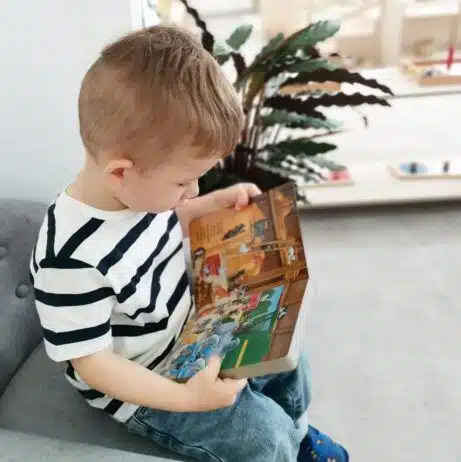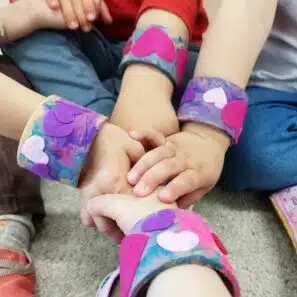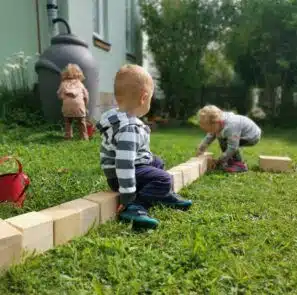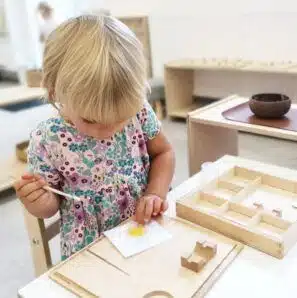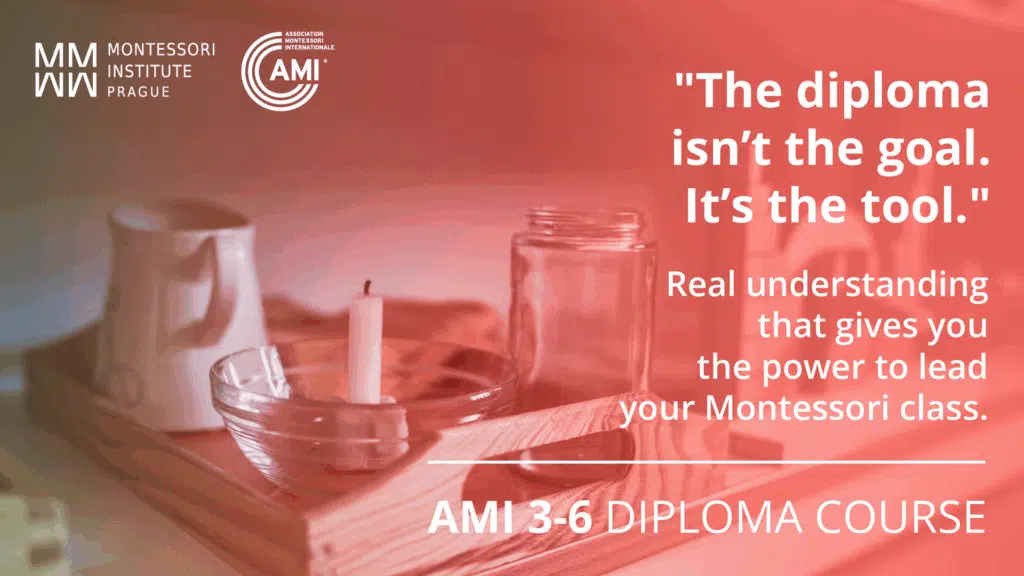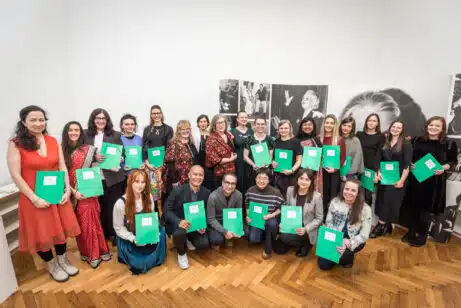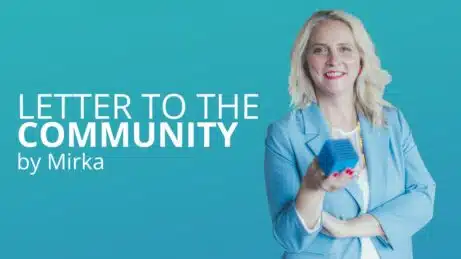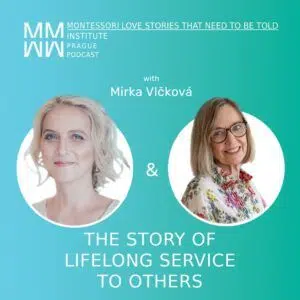One Name, Many Practices: The Reality of Montessori in Local Contexts
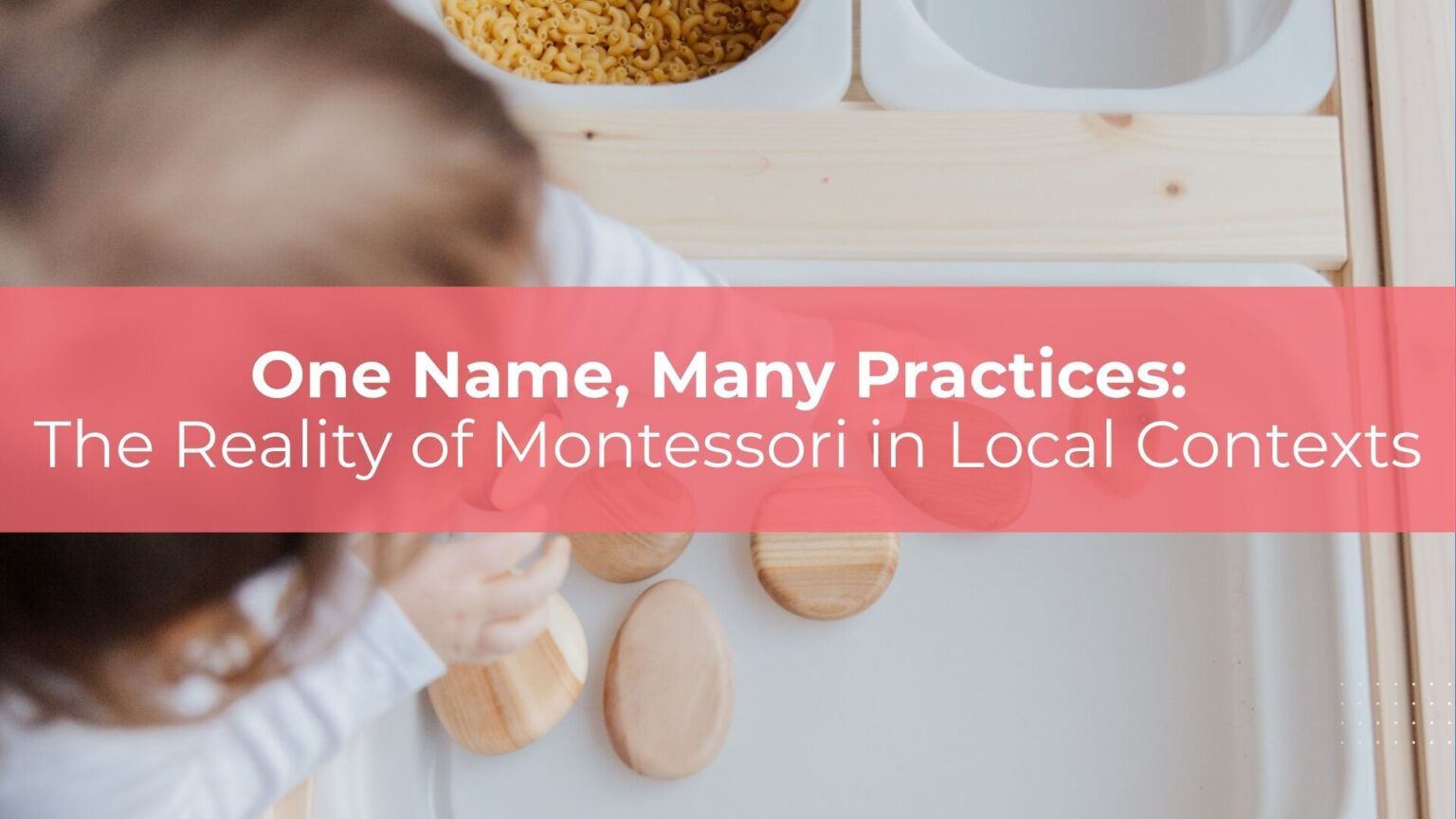
I had to translate this for you! I’m so happy to share this piece with you from my dear friend and colleague, Kateřina Vosátková. Katka is not only an AMI 0–3 Diploma graduate and the founder of the beautiful Montessori Space school here in Czechia, she’s also a thoughtful leader who cares deeply about the heart of Montessori.
This blog post is more than just a look at Montessori in Czechia — it’s a case study that reflects a challenge many countries face. The name “Montessori” can mean vastly different things depending on local training, regulations, and culture. Katka’s reflections invite us to pause, to notice those differences, and to remember why the depth and integrity of our work matters so much for the children we serve.
Enjoy the article! (Written by Katerina Vosatkova, translated from Czech by Mirka Vlckova.)
Mirka, CEO at Montessori Institute Prague
Montessori education is experiencing a huge boom in Czechia. The term “Montessori” is used by many kindergartens (including forest kindergartens), children’s groups, children’s clubs, and even in home schooling. However, this term covers a very wide range of approaches and often different understandings of the philosophy itself.
AMI Montessori and Czech Montessori are not the same – the difference is fundamental.
As an AMI-certified teacher who is in contact with the global Montessori community, I am increasingly finding that the term “Montessori” is used very loosely in Czechia. The facilities that use this label in our country often have little in common with the true Montessori approach.
I feel the need to speak openly about this, not to criticize, but to point out a difference that has a direct impact on children.
What exactly is AMI Montessori?AMI (Association Montessori Internationale) is an organization founded by Maria Montessori herself. It creates standards for training, environment, and practice that adhere to a unified philosophy around the world.
It is not a dogma, but a living system that honors the developmental needs of the child in every detail.
AMI training is not just a course. It is a process of profound personal transformation that changes the way we perceive children, ourselves, and the world around us. It takes years, it is demanding, and it requires willingness to stop acting according to ingrained patterns and instead begin to truly observe.
The trainers who lead the AMI training diploma courses have decades of experience, and their perspective is not influenced by a single culture or school system. It is a real depth that comes from a combination of scientific knowledge, decades of practice, and human wisdom.
It’s about the childrenI am not writing this article to judge other teachers. I know very well how difficult it is to live Montessori in everyday reality, in the Czech system, under the pressure of hygiene, inspections, and legislation. But at the same time, I know that children need an environment that truly meets their developmental needs, not a compromise between Montessori and kindergarten routine.
Montessori is more than a method. It is a way of life.
True Montessori does not begin with materials, but with adults. In their humility, willingness to change, and trust in the potential of children. If we allow ourselves to embark on this inner journey, we can create an environment that not only develops children, but also transforms us.
What is Czech Montessori?In Czechia, Montessori is often adapted to the conditions of the state system (schools in Czechia must abide by the official school educational program) or combined with other approaches. This has advantages (availability, greater flexibility) but also pitfalls. There is a simplification, often to the point of distortion, of the basic Montessori principles.
Courses for educators vary in length and quality. Unfortunately, Montessori is also taught by people who have not undergone even AMI training or have no personal experience working in a classroom run according to the original Montessori principles.
I meet people who have completed Czech Montessori courses, often with great enthusiasm, but with very little support in practice or in philosophy. Many:
- do not know the basic materials, or use them in a completely different way than was originally intended
- do not know how to observe children, and so instead of supporting their development, they only provide structure and control
- do not know the developmental stages of children and create programs that do not fit the current needs of the age group
- they create an environment of obedience instead of an environment of freedom with limits, children are led to silence, obedience and conformity, not self-direction
- they focus more on the result than on the process, they watch what the child does correctly instead of how they think, concentrate, or what they need at the moment
- They have little or no experience with a real Montessori classroom that operates in accordance with Montessori principles and they draw mainly from lectures, online sources, or inspiration without deeper roots.
This is not a criticism of teachers, but a fact. Many people start practicing Montessori before they really understand it. They lack deeper education, reflection on their own role as adults, and the ability to observe. Then there are facilities that have Montessori in their name but do not offer anything that could really help a child grow.
Can we grow together?By acknowledging differences, we are not judging anyone. On the contrary, we are opening up space for growth, dialogue, and deeper understanding. Montessori is a journey, and we are all somewhere along the way. It is important to know the milestones so that we don’t lose our direction. This is where AMI (Association Montessori Internationale) offers us support. It offers structure, continuity, and practice that has been proven in different cultures and conditions.
Comparison of AMI Teacher Training and Czech Montessori Courses
| Area | AMI Teacher Training (Diploma) | Czech Montessori Courses |
|---|---|---|
| Total Length | 1200–1400 hours (1–2 years) | 100–500 hours (including distance learning) |
| Theory | 300–500 hours: developmental psychology, Montessori philosophy, neuroscience, working with families, medical texts, and all areas of materials. | Usually 50–200 hours of theoretical lectures. |
| Child Observation | 250+ hours of structured observation of children, observation in certified Montessori classrooms with an AMI teacher. | Often symbolic 20–80 hours, sometimes without observation criteria. |
| Practice With Materials | Intensive training, supervised by a trainer, with detailed records of each presentation. | Demonstrations of selected materials, less consistent checking of correct use. |
| Records and Preparations | Mandatory handwritten presentation albums. Each element recorded, including purpose, age, error checking, etc. | Sometimes only worksheets or outlines. |
| Final Exam | Multi-step: practical (material presentation in front of an AMI exam panel) + oral + written + submission of all albums. | Usually a written test and final paper; practical part is rare. |
| Course Leader | AMI-accredited trainer (international training, years of experience, supervision). | Varying levels – from enthusiastic practitioners to instructors without AMI background. |
| International Recognition | Globally recognized diploma. | Often limited to national validity or considered inspirational only. |
What Do Presentation Compendiums Look Like in AMI Training?
Presentation Compendiums (in Czechia we call them Albums) are not just notes from lessons. They are comprehensive, structured documents that reflect a deep understanding of each material, each developmental step of the child, and each stage in the learning process. AMI training students usually create 6-12 large albums, each 300-500 pages long. These are 10-inch “packed” binders filled with handwritten presentations, illustrations, developmental notes, philosophical commentary, and references to theory. In the final exam, the albums are evaluated by trainers as key evidence of the student’s readiness to lead a class according to AMI standards.
- One Name, Many Practices: The Reality of Montessori in Local Contexts
- One Name, Many Practices: The Reality of Montessori in Local Contexts
- One Name, Many Practices: The Reality of Montessori in Local Contexts
The final exam for AMI courses is a demanding, multi-level assessment that tests not only knowledge but also a deep understanding of philosophy, child development, and the prepared environment. Several AMI trainers are always present, often from different countries. Their assessment is standardized and internationally verified to ensure a consistent level of quality worldwide.
- Practical part: in front of a panel of AMI trainers, the student presents a selected piece of material from the given age group – in its entirety, including the reason for the presentation, the stage of child development, error control, choice of location, and subsequent development.
- Oral part: a 2 hours long interview on Montessori philosophy, developmental psychology, and specific situations from practice.
- Written part: includes a written assignment that tests the ability to connect theory with practice.
- Albums: each student submits detailed albums of presentations, observations, and theory that document their overall understanding.
The result is a guide who is ready to become a true partner to the child.
Montessori has the power to change a child’s world, but only if we truly understand it.
It’s okay to be on a journey, to learn and grow. But if we really want to support children, we should not confuse inspiration with deep understanding. Let’s talk about the differences, share experiences, and seek quality. Why? Because children deserve an environment that truly sees them, respects them, and supports them in their growth. Montessori is a commitment. And its depth matters.
Closing Word by Mirka
Katka’s reflections on Montessori in Czechia highlight a reality that many of us face in different corners of the world: the same name, “Montessori,” can mean very different things. Her story is a reminder that quality matters, context matters, and children deserve environments that truly meet their developmental needs.
Wherever we are, I am inviting you to reflect on our own local Montessori landscape — what’s working, where we’re compromising, and how we might move closer to the depth and integrity Maria Montessori envisioned.
Start Your Journey as a 3–6 Montessori Guide
Feeling inspired? Take the next step.
If this article stirred something in you—curiosity, recognition, or a desire to go deeper—we warmly invite you to explore the internationally recognized AMI 3–6 Diploma Course offered by Montessori Institute Prague.
This is not just a training. It’s a transformational journey that prepares you to:
- Understand child development through the Montessori lens
- Work confidently with the full range of Montessori materials
- Practice observation, reflection, and intentional guidance
- Join a global community of educators committed to high-quality Montessori education
Learn more about the AMI 3–6 Diploma Course

